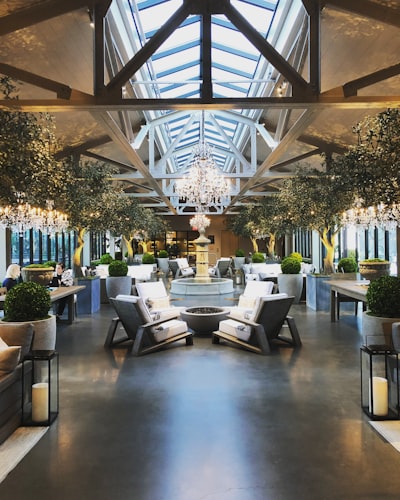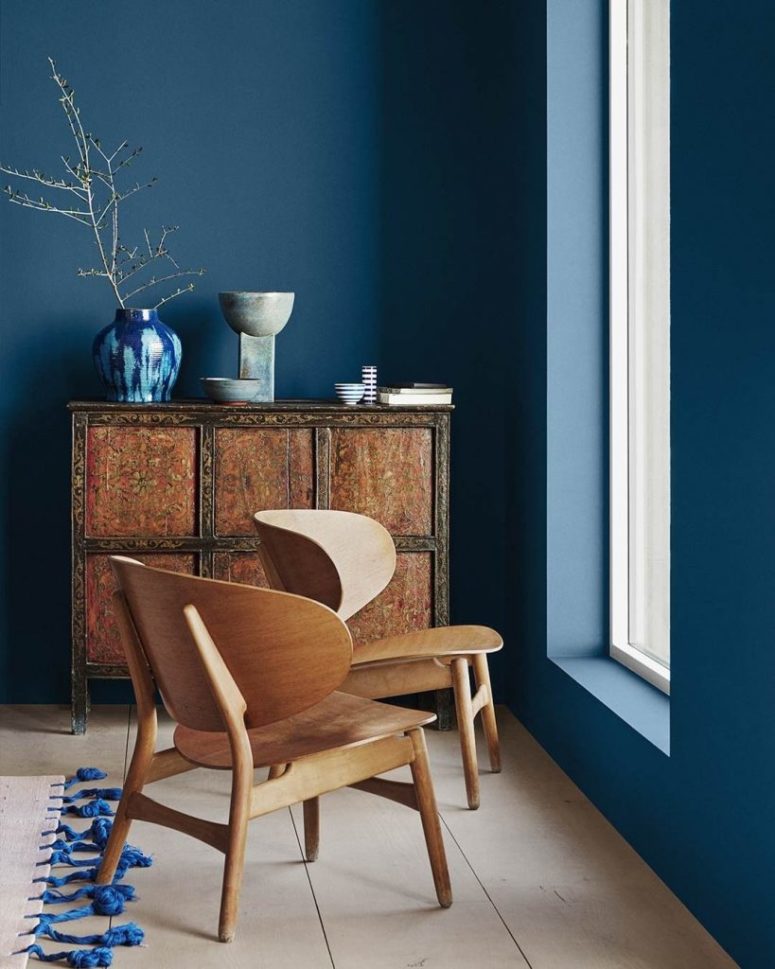Learn how bringing the outdoors inside inspires creativity, boosts productivity, settles anxiety, and reinforces healthy behaviour...

As John Muir said, “Going to the mountains is like going home.” Many can attest to the refreshing, attitude-changing experience of leaving a stuffy house to venture outdoors into the garden or down the road to a park. Interactions with nature have the power to reset the day, pulling us out of our manmade cocoons to appreciate the complex, organic beauty of the world around us.
Nature centers, invigorates, and calms us by reconnecting us to our original environment and reminding us of where all life comes from. It is believed by scientists around the world that humans today are still drawn to and fulfilled by biophilic design rather than stark, commercial interiors because of our evolutionary past as hunter-gatherers. While nothing can truly compare to the grounding effects of panoramic views of nature, opening your windows onto the natural world or infusing your home with natural materials can offer similar results.
Psychological Effects of Looking at Nature
Images of Nature and Stress-Reduction
According to a study by researchers at Vrije University Medical Center in the Netherlands, referenced by Peter Dockrill in his article “Just Looking at Photos of Nature Could Be Enough to Lower Your Work Stress Levels” for Science Alert, “just looking at still images of nature is enough 'natural' stimulus to lower our stress levels.” This effect may be due to evolutionary relationships with the colors found in nature, our innate desire as humans to connect with the natural world, or a combination of both.
A separate study entitled “Viewing Nature Scenes Positively Affects Recovery of Autonomic Function Following Acute-Mental Stress,” published by the NCBI, found that interactions with nature, as opposed to an indoor or synthetic environment, can lead to “improvements in self-esteem, positive and negative mood, anxiety levels, and feelings of calmness and comfort.” Recovery time from physical injury or struggles with mental health episodes may also be reduced by interactions with nature or with images of nature.
Color Psychology of Blue and Green


Other psychological researchers have found that organic colors in nature, especially those associated with edible plants (most of which are shades of green), water, and ancient crops (wheat, barley, flax, etc.) have a calming effect. There are also physiological reasons why humans react positively psychologically to the shades of blue and green found in nature.
According to the article “Color Psychology: The Emotional Effects of Colors” posted on Art Therapy’s blog, “the eye focuses the color green directly on the retina...said to be less straining on your eye muscles” than warm colors like red and orange, while blue is “said to decrease respiration and lower blood pressure.”
Effects of Indoor Plants on Productivity

A study published in 2014 by the Journal of Experimental Psychology found that productivity amongst workers could be enhanced by as much as 15% if potted plants were placed around office environments. As referenced above, access to nature does not need to be direct to be powerful; plants can be placed around the room, photographs of mountaintops and grassy fields can be hung on walls, and windows can be left open for a refreshing breeze and smells of flowers and trees.
The studies quoted above determined that anxiety levels could be reduced by exposure to nature. In an article for The Liberationist, Gustavo Razetti labels “anxiety [as] the number one productivity-killer,” noting that “40 percent of America’s employees experience persistent stress or excessive anxiety in their daily lives [with] 72 percent of them say[ing] it interferes with their lives and performance.” Given these terrifying statistics and the fact that views of nature do reduce anxiety, it stands to reason that filling your home with indoor plants will imbue a sense of calm and bump up your productivity.
Physical Effects of Exposure to Nature

While the positive impacts of exposure to nature on mental state and productivity have already been fleshed out above, many important physical effects still remain. Plants filter the air of toxins that can cause acute allergic reactions, chronic illness, lung damage, skin damage, breathing issues, and many other health problems both immediately and over time.
They also release oxygen into the air, taking the byproducts of human breath (carbon dioxide), removing them, and transforming them into comfortably breathable air. According to the article “How Does Nature Impact Our Wellbeing?“ released by the University of Minnesota, exposure to nature also affects the body by reducing “blood pressure, heart rate, muscle tension, and the production of stress hormones.”
Improve your own productivity, physical health, and emotional wellness by filling your home with images of the outside world. Paste foliage-patterned wallpaper on the walls, set up potted plants throughout each room, and choose natural materials wherever possible to ensure a happier, healthier home.



